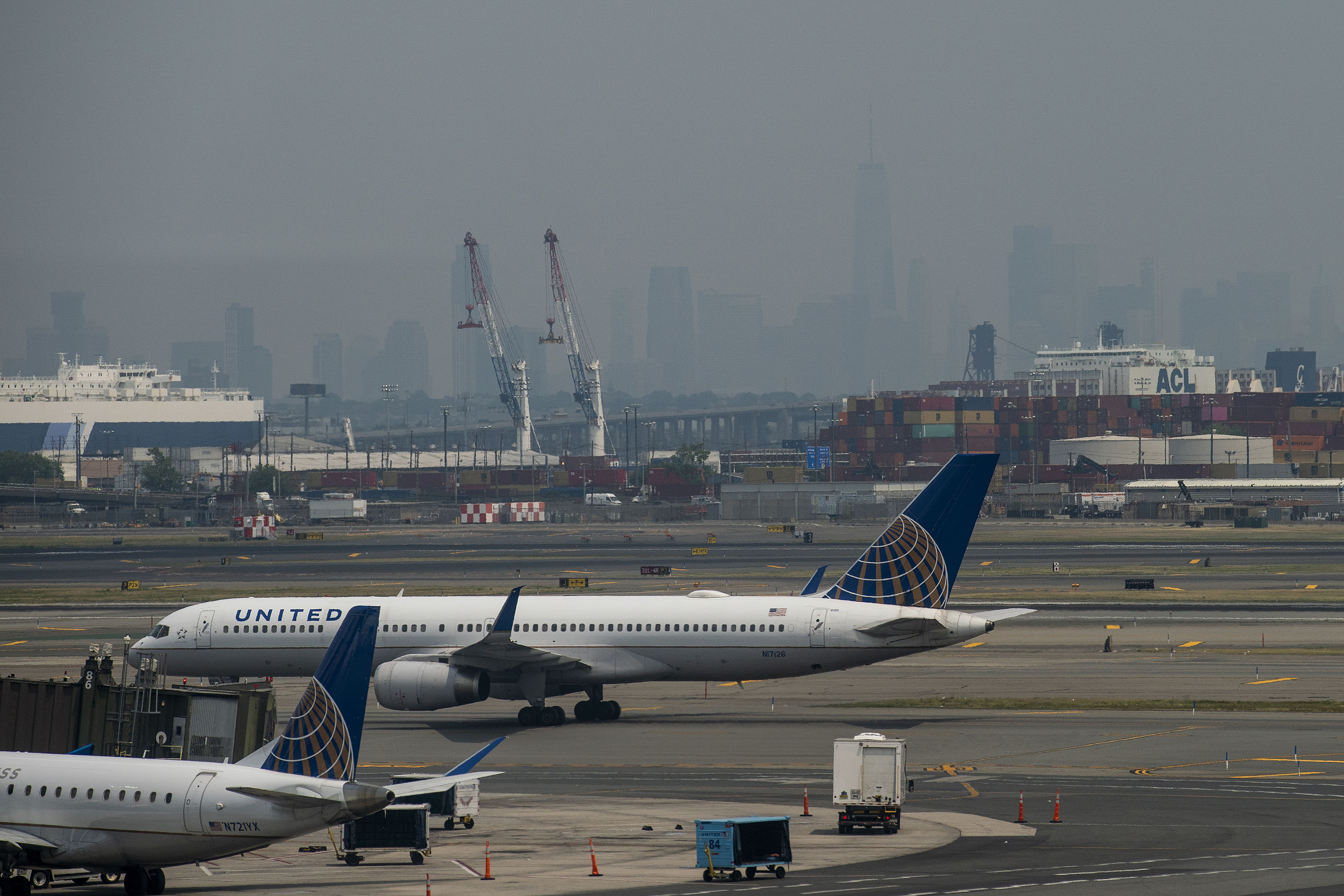The daily business briefing: June 9, 2023
Smoke from Canada wildfires disrupts flights and work on the U.S. East Coast, the S&P 500 officially enters a bull market, and more


A free daily email with the biggest news stories of the day – and the best features from TheWeek.com
You are now subscribed
Your newsletter sign-up was successful
1. Wildfire smoke disrupts flights, work on East Coast
Smoke from wildfires in Canada disrupted life and work across the U.S. East on Thursday. Poor visibility delayed airline flights, and dangerously poor air quality forced the cancellation of outdoor sports events. People who work outdoors, including delivery and construction workers, had to endure smoke inhalation, with many reportedly knocking off work midday as air quality got worse. Some companies passed out N-95 masks and let workers take breaks indoors. Labor groups pushed for more protections. New York City Public Schools announced that classes on Friday will be held remotely, although air quality improved overnight. Philadelphia suspended trash collection and street cleaning to protect workers from the unhealthy air.
2. S&P 500 officially enters bull market
The S&P 500 rose 0.6% on Thursday, officially entering a bull market, defined as a 20% gain from its most recent low. The index hit that low, 3,577.03, on Oct. 12, 2022, after fears that the Federal Reserve's plan to aggressively raise interest rates to bring down the highest inflation in decades would wreck the economy. Since then, it has risen to 4,293.93, capped with its 0.6% rise on Thursday. Most of the gains came in a rally this year as leading tech stocks surged, with Apple, Microsoft, and Google-parent Alphabet gaining 30%, 44%, and 25%, respectively. Because those companies are gigantic, their gains lifted the index even though nearly half of its stocks have fallen this year. U.S. stock futures edged lower early Friday.
The Week
Escape your echo chamber. Get the facts behind the news, plus analysis from multiple perspectives.

Sign up for The Week's Free Newsletters
From our morning news briefing to a weekly Good News Newsletter, get the best of The Week delivered directly to your inbox.
From our morning news briefing to a weekly Good News Newsletter, get the best of The Week delivered directly to your inbox.
3. GM follows Ford with deal to access Tesla charging network
General Motors on Thursday sealed a deal that will give owners of its electric-vehicle access to Tesla's supercharger network. Like Ford, which announced a similar agreement with Tesla two weeks ago, GM also will adopt Tesla's charging plug, now called the North American Charging Standard. Tesla in November said it invited other charging-network operators and EV makers to use its charging connector and charge port designs. Tesla says its connector is "half the size, and twice as powerful" as the ones GM, Ford, and other car manufacturers have been using. GM CEO Mary Barra said in a live event with Tesla CEO Elon Musk on Twitter Spaces that establishing a unified standard "will enable more mass adoption" of electric vehicles.
4. Meta gives employees a glimpse of its upcoming Twitter competitor
A top Meta executive gave employees a preview of the company's plan for a standalone social media app intended to be "our response to Twitter." "We've been hearing from creators and public figures who are interested in having a platform that is sanely run," Meta chief product officer Chris Cox said in a thinly veiled jab at Twitter owner Elon Musk. Cox said the app will automatically input a user's information using Instagram's account system. Cox said the company wants the app to offer "safety, ease of use, reliability" and provide creators a "stable place to build and grow their audiences."
A free daily email with the biggest news stories of the day – and the best features from TheWeek.com
5. Carvana shares soar as cost cutting improves profit picture
Carvana shares shot up by 56% on Thursday after the online used-car seller said its cost-cutting efforts were paying off and would improve profits in the second quarter. Falling prices have dented the value of the Arizona company's inventory, and rising interest rates and high inflation have forced consumers to cut back, reducing demand for big purchases like cars. But the company said Thursday it expected adjusted earnings of more than $50 million for the second quarter, before interest, taxes, and depreciation. Analysts surveyed by FactSet had forecast an adjusted loss of $6.1 million.
Harold Maass is a contributing editor at The Week. He has been writing for The Week since the 2001 debut of the U.S. print edition and served as editor of TheWeek.com when it launched in 2008. Harold started his career as a newspaper reporter in South Florida and Haiti. He has previously worked for a variety of news outlets, including The Miami Herald, ABC News and Fox News, and for several years wrote a daily roundup of financial news for The Week and Yahoo Finance.
